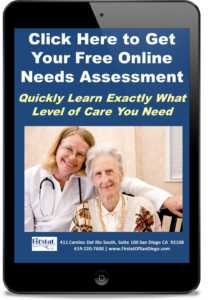
Lincoln, NE (PRWEB) June 13, 2012
Home Care Assistance of Nebraska, a leading provider of in-home care for senior, is pleased to add Care Managers, Cheryl Miller, Traci Hawk and Mary Lundgren to its Nebraska team.
?These professionals will be instrumental in bringing our Professional Care Management and Hospital to Home Care services to the Nebraska market,? said Matt Nyberg, President of Home Care Assistance of Nebraska.
Miller graduated from the Bryan School of Nursing with extensive experience in intensive, cardiac care at the BryanLGH Hospital and BryanLGH Heart Institute. ?Her focus on cardiac rehabilitation post-surgery aligned perfectly with our Balanced Care Method? approach to care,? Nyberg explained.
Hawk earned her nursing degree at UN Kearny. Her education and work experience has made her an expert in navigating Nebraska?s increasingly complex health care community. Patient advocacy is her passion: ?I want the best possible outcome for our clients in each unique situation. People need support understanding care options and physician?s orders to benefit from medical care,? explained Hawk.
Lundgren?s BS in Nursing is from UNMC Omaha. Spousal relocations led her to Johns Hopkins in Baltimore, MD and Baylor UMC in Dallas, TX. Her varied nursing background is an excellent foundation for a client care position at Home Care Assistance, with patient experience in post-surgery to Alzheimer?s care. Lundgren said, ?Home Care Assistance?s ?whole person? approach really supports improving a person’s quality of life; staying in the familiar environment of their own home makes a tremendous difference to well-being.?
Home Care Assistance of Nebraska Care Managers provide rigorous, in-depth training to caregivers on the latest industry trends, techniques and best practices in home care to help clients age in place gracefully. ?Our comprehensive caregiver training differentiates us in the industry and is a critical component of our success,? adds Miller.
Home Care Assistance is North America?s premier provider of in-home care for seniors. For more information call (402) 261-5158 or visit http://www.HomeCareAssistanceLincoln.com.
About Home Care Assistance:
Home Care Assistance is the leading provider of home care for seniors across the United States and Canada. Our mission is to change the way the world ages. We provide older adults with quality care that enables them to live happier, healthier lives at home. Our services are distinguished by the caliber of our caregivers, the responsiveness of our staff and our expertise in Live-In care. We embrace a positive, balanced approach to aging centered on the evolving needs of older adults. A 2012 Franchise500






